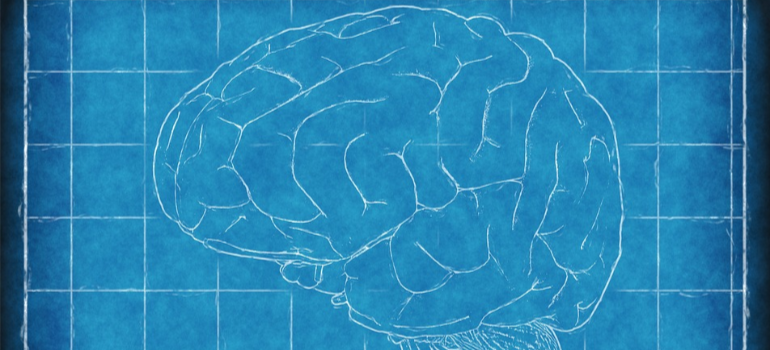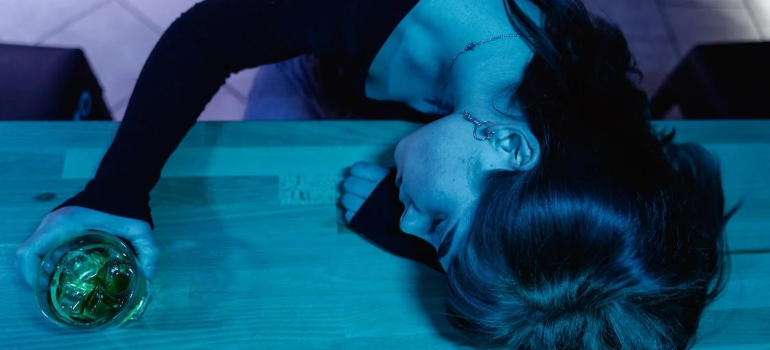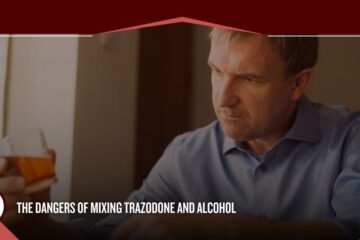Alcohol, a widely consumed substance, has long been associated with social gatherings, stress relief, and relaxation. However, the effects of alcohol extend far beyond the immediate euphoria it may induce. Understanding how alcohol affects sleep is crucial, as it plays a vital role in our physical and mental well-being. As the premier inpatient alcohol detox center Texas trusts, we are no strangers to the severe impact it can have. From altering sleep architecture to increasing sleep onset latency, alcohol’s influence can impair the quality and quantity of our slumber. Alamo Behavioral Health delves into the physical and mental effects of alcohol on sleep, both in the short-term and long-term and explores practical solutions to secure better sleep for a healthier, well-rested life.
The Effects of Alcohol on Sleep
Initially, alcohol’s impact on sleep extends beyond its initial sedative effects, profoundly influencing both the body and mind during slumber. When consumed, alcohol disrupts the intricate balance required for a restorative night’s rest. It interferes with sleep architecture, altering the sequence and duration of sleep stages.
Furthermore, alcohol disrupts the production and regulation of various neurotransmitters in the brain, including gamma-aminobutyric acid (GABA), which plays a crucial role in promoting sleep. These disruptions, combined with alcohol’s impact on sleep latency, result in compromised sleep quality, leaving individuals feeling less rested and refreshed upon awakening.

How Alcohol Affects Sleep: Short-Term Effects
Naturally, the effects of alcohol on sleep begin with short-term effects and become more pronounced with prolonged use. Here we can begin by exploring the former:
- Disrupted sleep architecture
- Sleep-disordered breathing
- Increased sleep onset latency
Disrupted Sleep Architecture
One of the prominent short-term effects of alcohol on sleep is the disruption of sleep architecture. Alcohol’s influence on sleep stages can significantly impair the quality and restorative nature of our slumber. Consuming alcohol before bedtime leads to a decreased amount of time spent in crucial sleep stages, such as deep sleep and rapid eye movement (REM) sleep. Deep sleep is vital for physical restoration, immune function, and memory consolidation, while REM sleep plays a critical role in cognitive processing and emotional regulation.
Furthermore, alcohol contributes to frequent awakenings throughout the night, resulting in sleep fragmentation. These disruptions to the normal progression of sleep stages and the increased wakefulness during the night leave individuals feeling less refreshed and rejuvenated upon waking.
Sleep-Disordered Breathing
Sleep-disordered breathing is another short-term effect of alcohol on sleep. Alcohol consumption can have a significant impact on breathing patterns during sleep, leading to disruptions in respiratory function. Alcohol acts as a muscle relaxant, including the muscles in the throat and airway, which can contribute to an increased likelihood of experiencing sleep apnea episodes. It is this function which best illustrates how alcohol affects sleep on the whole.
Sleep apnea is a condition characterized by pauses in breathing or shallow breathing during sleep, often accompanied by loud snoring and brief awakenings. Alcohol’s relaxing effects on the muscles can exacerbate the obstruction of the airway, further compromising breathing during sleep. The link between alcohol and sleep apnea highlights how alcohol consumption can disrupt normal breathing patterns, compromising sleep quality and potentially leading to daytime fatigue and other related health issues.

Increased Sleep Onset Latency
Finally, increased sleep onset latency is a notable short-term effect of alcohol on sleep. After consuming alcohol, individuals often need a longer time to fall asleep compared to their normal sleep patterns. This delayed sleep onset, known as sleep latency, can significantly impact the initial quality of sleep.
While alcohol may initially induce drowsiness, it disrupts the natural sleep-wake cycle, leading to difficulties in initiating sleep. The sedative effects of alcohol wear off over time, leaving individuals in a state of wakefulness, restlessness, or even increased alertness. This extended period of time spent awake before falling asleep not only diminishes the total duration of sleep but also contributes to a less restful and restorative sleep experience.
How Alcohol Affects Sleep; Long-Term Effects
Beyond short-term effects, prolonged alcohol consumption can bring about long-term effects. Such effects are naturally more severe, and overcoming them may require services for medical detox San Antonio has to offer. They include:
- Tolerance and dependence on alcohol
- Alcohol-related insomnia
- Sleep disorders
Tolerance and Dependence on Alcohol
Tolerance and dependence are long-term effects of alcohol on sleep that can have significant repercussions. With prolonged alcohol use, the body gradually develops tolerance to the sedative effects of alcohol. This means that over time, larger amounts of alcohol are required to achieve the same sleep-inducing effect. As tolerance builds, individuals may find themselves consuming increasing quantities of alcohol in an attempt to facilitate sleep.
This escalating pattern of alcohol consumption can lead to dependence, where the body becomes reliant on alcohol to initiate sleep. However, this dependence can perpetuate a vicious cycle, as alcohol disrupts the natural sleep architecture and compromises sleep quality.
Alcohol-Related Insomnia
Alcohol-related insomnia is another long-term effect of alcohol on sleep that can have profound implications. Chronic insomnia often arises as a consequence of alcohol dependence and subsequent disruptions in sleep patterns. The cycle begins with alcohol’s sedative properties initially aiding in sleep initiation. However, as tolerance develops, the effectiveness of alcohol as a sleep aid diminishes, leading to increased difficulties falling and staying asleep.
This alcohol-induced poor sleep quality can exacerbate existing insomnia or trigger its onset, exacerbating how alcohol affects sleep. As individuals experience disrupted sleep, they may resort to consuming more alcohol in an attempt to alleviate insomnia symptoms, perpetuating a vicious cycle. This is why Cigna rehab coverage will typically extend to treatment for such alcohol-related symptoms, as alcohol-related insomnia not only impairs sleep quality but also negatively impacts overall well-being and daytime functioning.
Sleep Disorders and Alcohol
There is a strong association between alcohol and sleep disorders, highlighting the intricate relationship between the two. Alcohol use has been linked to various sleep disorders, such as insomnia and restless legs syndrome.
Insomnia, characterized by difficulties falling asleep or staying asleep, is commonly observed in individuals with alcohol use disorders. Similarly, restless legs syndrome, a condition characterized by uncomfortable sensations in the legs and an irresistible urge to move them, has been found to be more prevalent among those who consume alcohol.
Importantly, the relationship between alcohol and sleep disorders is reciprocal. While alcohol can contribute to the development or exacerbation of sleep disorders, pre-existing sleep disorders can also lead to increased alcohol consumption as individuals seek relief from their sleep-related symptoms. This is why any reputable alcohol detox program Texas has to offer will strongly focus on this connection.

Solutions to Secure Better Sleep
Having outlined how alcohol affects sleep, here we can conclude by highlighting some key practices that can help secure better sleep:
- Sleep hygiene practices
- Relaxation techniques
- Moderation and timing when drinking
- Seeking professional help
Sleep Hygiene Practices
Adopting proper sleep hygiene practices is crucial for securing better sleep, especially when considering how alcohol affects sleep. One important aspect is establishing a consistent sleep schedule by going to bed and waking up at the same time each day, including weekends. This helps regulate the body’s internal clock and promotes a more regular sleep-wake cycle.
Additionally, creating a sleep-friendly environment is essential. This includes keeping the bedroom cool, dark, and quiet and using comfortable bedding and pillows. Minimizing noise, light, and distractions can enhance the sleep environment and facilitate uninterrupted rest. By implementing these sleep hygiene practices, individuals can optimize their sleep quality and offset the disruptive effects of alcohol on sleep, leading to more restful and rejuvenating nights.
Relaxation Techniques
In line with the above, incorporating relaxation techniques into bedtime routines can be an effective solution to secure better sleep. Engaging in relaxation methods helps calm the mind and prepare the body for restful sleep. Breathing exercises, such as deep diaphragmatic breathing or progressive muscle relaxation, can alleviate physical tension and promote relaxation. Such techniques are not exclusive to alcohol-induced sleep problems either; PTSD treatment for veterans in Texas often includes such practices as well.
Meditation and mindfulness practices encourage the release of stress and anxiety, allowing for a more peaceful and tranquil state of mind. These techniques can help individuals unwind from the day’s stressors and create a peaceful mental and physical environment conducive to sleep. By integrating relaxation techniques into their nightly rituals, individuals can counteract the disruptive effects of alcohol on sleep and foster a calm and rejuvenating sleep experience.

Moderation and Timing When Drinking Alcohol
Moderation and timing play a crucial role in securing better sleep when it comes to alcohol consumption. Practicing moderation in alcohol consumption is key to minimizing its negative impact on sleep. It is recommended to adhere to moderate drinking guidelines, which typically suggest no more than one drink per day for women and up to two drinks per day for men.
Additionally, paying attention to the timing of alcohol consumption is essential. To ensure better sleep quality, it is advisable to reduce alcohol intake several hours before bedtime. This allows the body sufficient time to metabolize the alcohol and minimize its disruptive effects on sleep. Practicing moderation and being mindful of the timing of alcohol consumption can promote healthier sleep patterns and mitigate the adverse effects of alcohol on sleep.
Seeking Professional Help
Having illustrated how alcohol affects sleep in such profound ways, self-help techniques may not, in all cases, suffice. If so, seeking professional help is an important solution to outline. It is advisable to consider consulting a healthcare professional if alcohol use significantly interferes with sleep quality or if sleep problems persist despite implementing lifestyle changes.
Healthcare professionals, such as doctors or sleep specialists, can provide a comprehensive assessment and diagnosis, taking into account the specific relationship between alcohol and sleep. They can offer tailored treatment options, which may include therapy, medication, or a combination of both, to address the underlying causes of sleep disturbances and manage alcohol use. Professional guidance can help individuals navigate the complexities of alcohol’s impact on sleep and provide evidence-based strategies to improve sleep quality, promote healthier habits, and enhance overall well-being.

Consume Alcohol Responsibly and Enjoy an Uninterrupted Sleep
It is clear that alcohol has a significant impact on our sleep patterns and overall quality of rest. While it may initially seem like a friend in aiding relaxation and inducing sleep, the truth is that alcohol disrupts the delicate balance of our sleep architecture, leading to fragmented and restless nights. Understanding the effects of alcohol on sleep is crucial, as it allows us to make informed decisions about our drinking habits and prioritize our well-being.
For those struggling with alcohol addiction, it is important to remember that help is available, and recovery is possible. Overcoming addiction can be a challenging journey, but with the right support system and, if necessary, residential treatment options, individuals can reclaim their lives and find a renewed sense of balance.
There are various treatment approaches for alcohol addiction, ranging from counseling and therapy to medication-assisted treatments and support groups. Seeking professional help and surrounding yourself with understanding and compassionate individuals can make a significant difference in your recovery process.
Remember, a good night’s sleep is crucial for our overall well-being and functioning. Knowing how alcohol affects sleep can help you make conscious choices about your alcohol consumption and seek help when needed. With knowledge and the right support, you can pave the way toward healthier sleep patterns and a brighter future.




